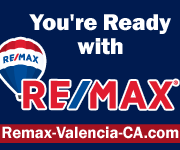FAMILY - EDUCATION & ENRICHMENT
Back to School Quiz For Parents
August, 2013 - Issue #106
#1. What is a charter school?
Charter schools are overseen by the local school district or county but are free to govern themselves and create their own educational program. Any member of the public is invited to attend a charter school. If more students want to attend than can be accommodated, a random lottery will determine the order of the waiting list. Charter schools are tuition free and are publicly funded by the per-child, ADA funding that the state provides, as well as public and private grants and private donations. All charter schools are open to all California residents, regardless of where students live. Locally, SCVi Charter School provides project-based learning for children in kindergarten through 12th grade. Rather than promote rote memorization, SCVi boasts many hands-on, project-style learning periods. Research shows that when students discover the answer for themselves, they remember it for the long term, rather than a short period for the test. This explains SCVi's inquiry-based approach - the teacher poses a question to the students, and they do their own investigation and research to get the answer, rather than having it fed to them.
SCVi Charter School 705-4820
#2. What does an accelerated academic program look like?
You're probably most familiar with the accelerated academic options available in high schools. Because classes at that stage are taught by subject-specific instructors in dedicated classroom space, teens can rotate to different classes at different times in groups that are on their same skill level.
Most parents don't realize that this option exists for the younger set, too. At Legacy Christian Academy, children are provided the opportunity, for example, to take advanced mathematics courses. While public-school peers may be in Pre-algebra or Algebra in eighth grade, Legacy students can take Geometry. The advantage - besides keeping academically-successful kids engaged and challenged - is that they're better prepared for the possibilities of advanced math courses in high school and college. For similar reasons, Legacy offers high-school-level Spanish courses beginning in the seventh grade.
Because the Legacy program builds, beginning in kindergarten, on their highly-acclaimed accelerated academic program, every child has a real opportunity to develop the skills needed to master advanced subject matter. That's why so many Legacy grads are directly placed in Honors and AP courses in their first year of private or public high school.
Legacy Christian Academy 257-7377
#3. What does FAFSA stand for?
FAFSA is the acronym for Free Application for Federal Student Aid. In the most basic sense, the FAFSA helps determine your child's eligibility for college monies from the US government. This data-gathering app includes info on your income and family size, then plugs those numbers into a formula to declare your Estimated Family Contribution (EFC). Most colleges and universities use your EFC to decide how much additional funding your child will need to afford their programs.
If all of this sounds a little intimidating, you're right. Thousands of parents make very expensive FAFSA mistakes each year - mistakes that are often hard to catch, and even harder to correct. Organizations like College Planning Experts provide education and assistance in planning for the costs of college and can even have a professional fill out your FAFSA for you. By getting ahead of the game - ideally before your child's sophomore year of high school - you can take practical steps to reduce your family's EFC and increase your child's chances of getting financial aid from the government or their chosen school. The company also provides consulting services to assist you and your child in selecting the ideal university and program for your college-bound teen.
College Planning Experts 295-9946
Charter schools are overseen by the local school district or county but are free to govern themselves and create their own educational program. Any member of the public is invited to attend a charter school. If more students want to attend than can be accommodated, a random lottery will determine the order of the waiting list. Charter schools are tuition free and are publicly funded by the per-child, ADA funding that the state provides, as well as public and private grants and private donations. All charter schools are open to all California residents, regardless of where students live. Locally, SCVi Charter School provides project-based learning for children in kindergarten through 12th grade. Rather than promote rote memorization, SCVi boasts many hands-on, project-style learning periods. Research shows that when students discover the answer for themselves, they remember it for the long term, rather than a short period for the test. This explains SCVi's inquiry-based approach - the teacher poses a question to the students, and they do their own investigation and research to get the answer, rather than having it fed to them.
SCVi Charter School 705-4820
#2. What does an accelerated academic program look like?
You're probably most familiar with the accelerated academic options available in high schools. Because classes at that stage are taught by subject-specific instructors in dedicated classroom space, teens can rotate to different classes at different times in groups that are on their same skill level.
Most parents don't realize that this option exists for the younger set, too. At Legacy Christian Academy, children are provided the opportunity, for example, to take advanced mathematics courses. While public-school peers may be in Pre-algebra or Algebra in eighth grade, Legacy students can take Geometry. The advantage - besides keeping academically-successful kids engaged and challenged - is that they're better prepared for the possibilities of advanced math courses in high school and college. For similar reasons, Legacy offers high-school-level Spanish courses beginning in the seventh grade.
Because the Legacy program builds, beginning in kindergarten, on their highly-acclaimed accelerated academic program, every child has a real opportunity to develop the skills needed to master advanced subject matter. That's why so many Legacy grads are directly placed in Honors and AP courses in their first year of private or public high school.
Legacy Christian Academy 257-7377
#3. What does FAFSA stand for?
FAFSA is the acronym for Free Application for Federal Student Aid. In the most basic sense, the FAFSA helps determine your child's eligibility for college monies from the US government. This data-gathering app includes info on your income and family size, then plugs those numbers into a formula to declare your Estimated Family Contribution (EFC). Most colleges and universities use your EFC to decide how much additional funding your child will need to afford their programs.
If all of this sounds a little intimidating, you're right. Thousands of parents make very expensive FAFSA mistakes each year - mistakes that are often hard to catch, and even harder to correct. Organizations like College Planning Experts provide education and assistance in planning for the costs of college and can even have a professional fill out your FAFSA for you. By getting ahead of the game - ideally before your child's sophomore year of high school - you can take practical steps to reduce your family's EFC and increase your child's chances of getting financial aid from the government or their chosen school. The company also provides consulting services to assist you and your child in selecting the ideal university and program for your college-bound teen.
College Planning Experts 295-9946
|
||||||||||||||||||||||||||||




